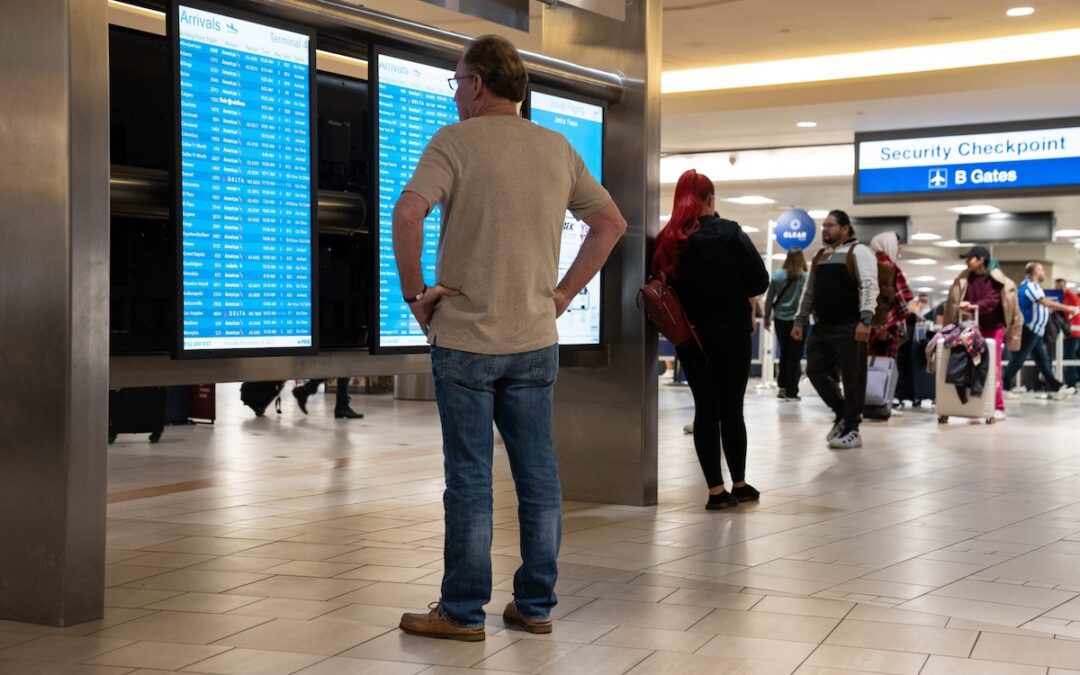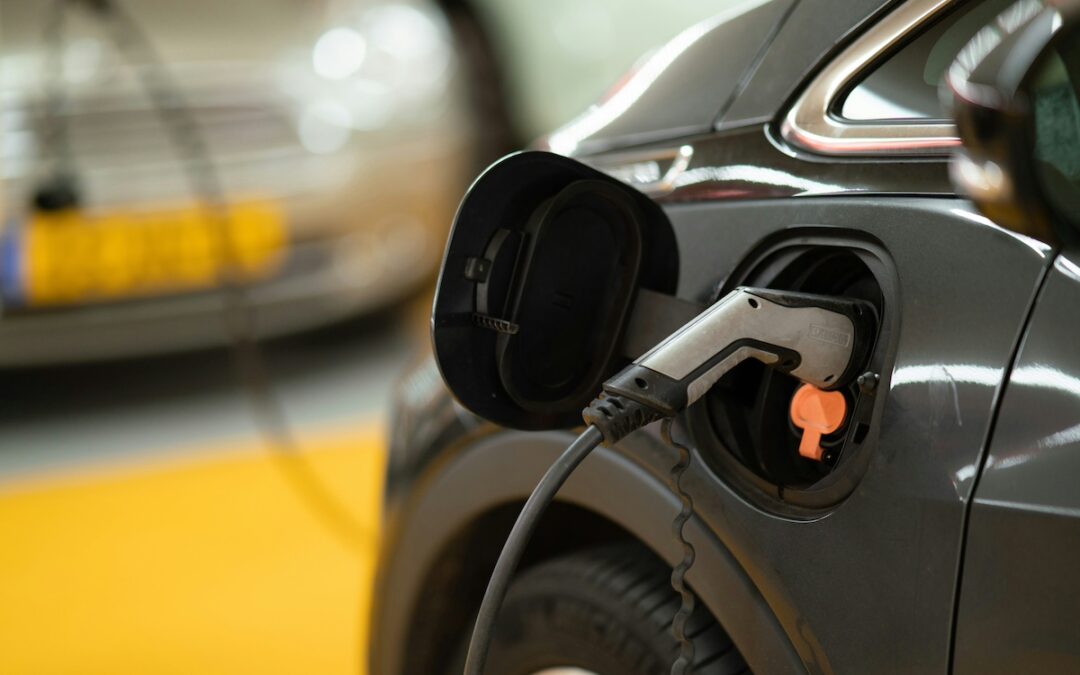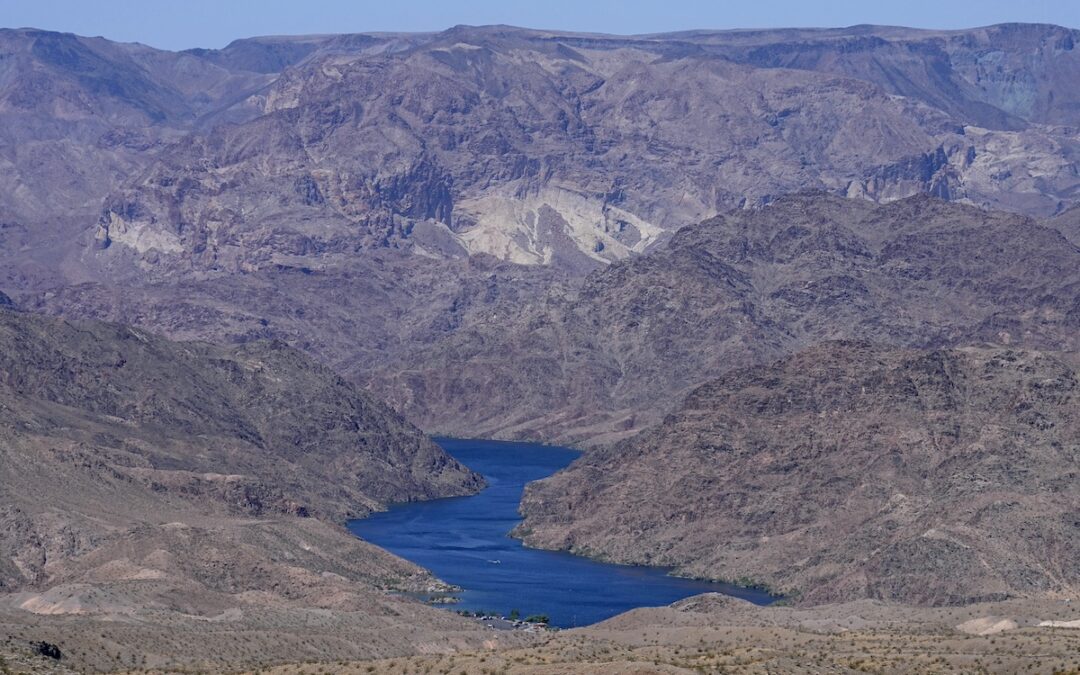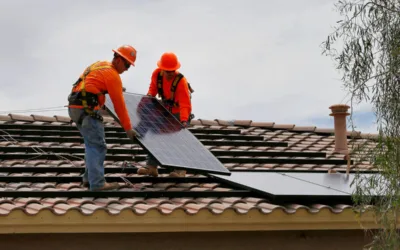
In his role as the first Black mayor of Tempe, Corey Woods prioritizes affordable housing, access to transportation, and digital equity as critical components of a better quality of life in Arizona. (Photo courtesy of Corey Woods)
In his role as the first Black mayor of Tempe, Corey Woods prioritizes affordable housing, access to transportation, and digital equity as critical components of a better quality of life in Arizona.
Tempe mayor Corey Woods has a long history of political engagement.
“I had been involved in student government pretty much since the fifth grade all the way through the end of my sophomore year at the University of Michigan. And so I took some time off from that, but then made a decision at some point once I got into my mid-twenties that I wanted to get more involved civically,” said Woods.
Woods moved from Michigan to Arizona in 2003 to attend graduate school at Arizona State University. By 2008, he had started his first appointment on the Tempe City Council, ultimately serving two four-year terms before taking a break to work in the K-12 education space. In 2020, he returned to local politics and was elected mayor of Tempe.
Today, as the city’s first Black mayor, Woods is driven by a desire to help Arizonans make connections between civic involvement and improved conditions in their everyday lives.
“There’s a lot more still that I have to do, quite honestly, but that’s what gets me out of bed every morning. It’s the opportunity to try to do good work and to try to better my community and just move the country forward,” he said.
Biden investments have made a difference in Tempe and beyond
Woods specifically credits the Biden-Harris administration’s Bipartisan Infrastructure Law with moving Arizona forward. The law, which invested $1 trillion nationwide to improve everything from bridges to battery plants, has allotted some $8 billion to Arizona since its passage in 2021.
Woods said the investment has resulted in more than 630 projects statewide that are designed to improve broadband internet access, water infrastructure, and more. In Tempe and the surrounding areas, he said, transportation and internet expansion projects are particularly meaningful.
“As the Valley continues to get more populated and a lot more crowded, we have to develop systems that allow people to get around. Not just through the use of a single-use automobile, but also through other things like light rail, modern streetcar, our bus systems and all types of other networks.”
When it comes to internet access, Woods explained, equity remains a barrier.
“We can’t do anything anymore without proper internet connectivity and, frankly, high speed internet connectivity,” Woods said. “There are a lot of communities where people have ready access to the internet or have the ability to pay for all of this on their own, but there are a lot of communities, frankly, in the inner city or a lot of our tribal communities, that haven’t always had the same access to sort of the internet superhighway.”
Thanks to funding from the Bipartisan Infrastructure Law, Arizona established its Broadband Equity Access and Deployment (BEAD) and Digital Equity Programs in 2023—with a five-year goal of ensuring “high-speed internet is available to every household, business, anchor institution and community within the state.”
And earlier this year, Gov. Katie Hobbs announced a partnership between the Arizona Department of Transportation and eX² Technology, a firm based in Omaha, Nebraska. The partnership will allow for expanded broadband access in the state’s rural and underserved communities by way of fiber-optic conduit installation along sections of I-19, I-17, and I-40.
“The fact of the matter is that the $8 billion of investments that are going to be coming down to the state of Arizona as a result of that Bipartisan Infrastructure Law are going to help all of those things: roads, water, infrastructure, internet connectivity,” Woods said. “We could not, frankly, be who we are or continue to improve upon the great state that Arizona currently is without that money coming in as a result of that law.”
Addressing the housing crisis with help from federal funding
And beyond the Bipartisan Infrastructure Law, Woods said federal investments have allowed him to focus on improving affordable housing in Tempe, where more than half of all renters are considered “burdened” or “severely burdened” by housing costs.
“One of the first things I did when I became mayor was, I said, ‘Look, we can’t just be one of these administrations that talks a lot about affordable housing, but actually doesn’t have any tools by which to get it,’” he said.
In 2021, the Tempe City Council approved the Hometown for All program, which helps create a sustainable funding source for more affordable housing in the city. The equivalent of 50% of permit fees from every development project in Tempe are paid to an affordable housing fund, while donations from local developers are also encouraged.
“We did it because there are a lot of restrictions, frankly, in the state of Arizona due to previous state law and previous statewide preemptions that make it more difficult, from my perspective, to do affordable housing here than in a lot of other states throughout the country,” Woods said.
Thanks to an additional $1.6 million in federal funding secured through the efforts of Rep. Greg Stanton (D-4th District), Woods said, Tempe will also soon have around a hundred new units of affordable housing for community members.
These initiatives to improve housing access come at a particularly critical time for unhoused Americans, as the US Supreme Court last month ruled that cities can legally punish people for sleeping in public places. The ruling applies directly to states in the 9th Circuit Court of Appeals, which includes Arizona.
“There’s an affordable housing crisis in this country. There’s an affordability crisis and also a supply crisis,” Woods said. “Affordable housing is a very big deal to me.”
Helping Arizona voters make connections
Woods wants Arizonans to understand that improvements to community transportation systems, internet access, housing, and other local infrastructure don’t just happen.
“I think sometimes we just sort of take these things for granted,” he said. “I’m driving down a smooth road and I just have an expectation that that’s what it’s supposed to be like. But the fact of the matter is that money comes from somewhere.”
One of his goals as a community leader is to connect with individuals and reiterate his belief that voting matters—particularly in an age when it’s easy to share grievances on social media without taking action to address those grievances more directly.
“The fact of the matter is then we have to keep it going,” Woods said. “At the end of the day, the only way you can truly ensure that you have the leadership that you want, that you feel is moving the country in the right direction, is to make sure that you cast your vote.”

Phoenix Sky Harbor Airport sees flight reductions amid government shutdown
As the record-breaking government shutdown continues to disrupt American life, airports, airlines and travelers are waiting to see how flight...

Commission candidates, Arizonans upset over state’s increasing utility rates
PHOENIX — Anna Cicero, a retired educator who lives in Chandler with her daughter and grandson, held her utility bill up while speaking behind a...

Arizona’s electric vehicles will soon lose access to HOV lanes. Here’s why
If you're used to cruising solo in the HOV lane during rush hour because of your electric vehicle, that could soon cost you at least $400. Lone...

White House scraps water expert’s nomination as states hash out Colorado River plan
ALBUQUERQUE, N.M. (AP) — A veteran water expert from Arizona says the Trump administration withdrew his nomination to lead the federal agency that...





